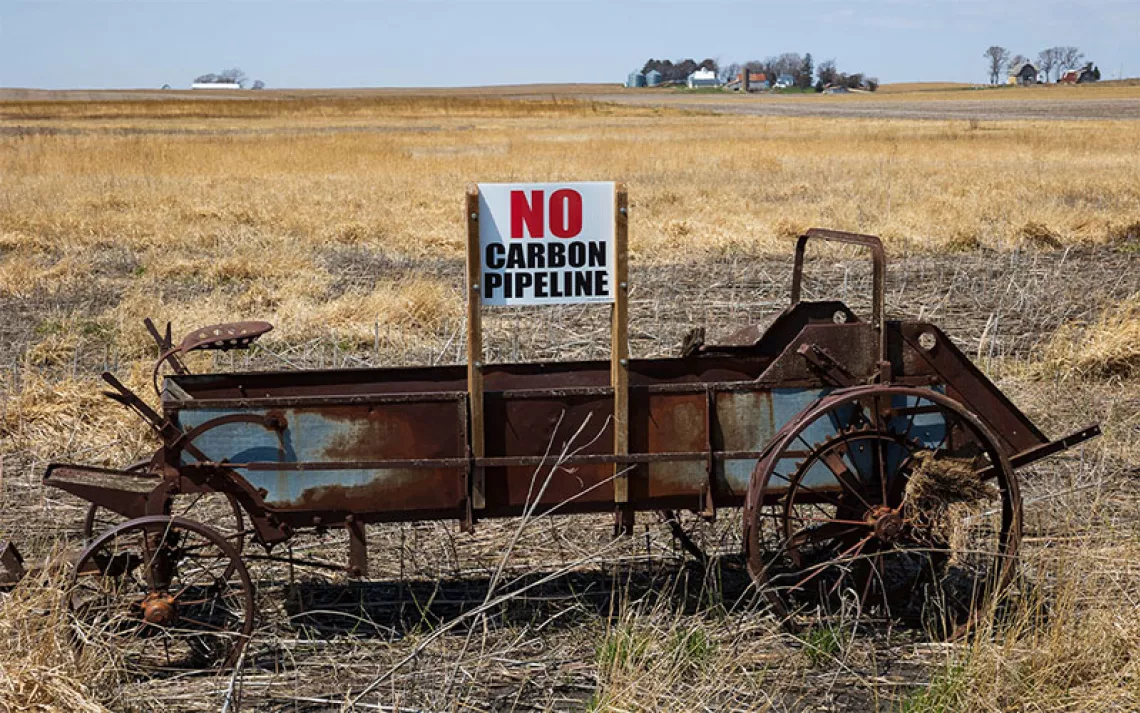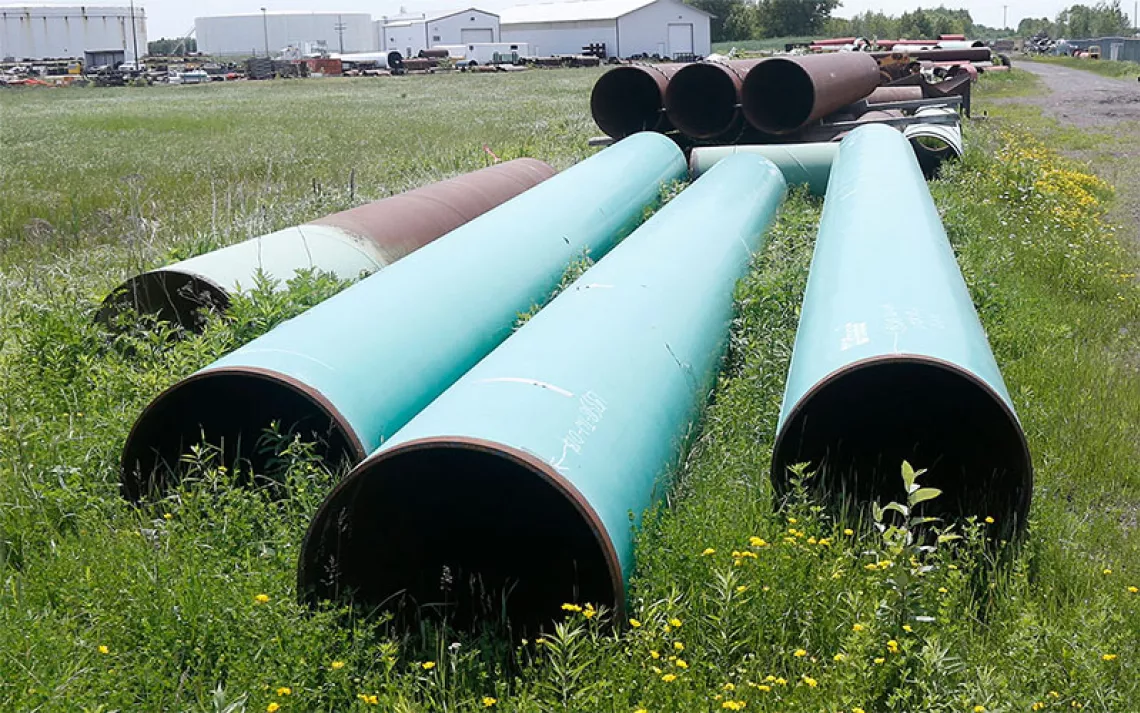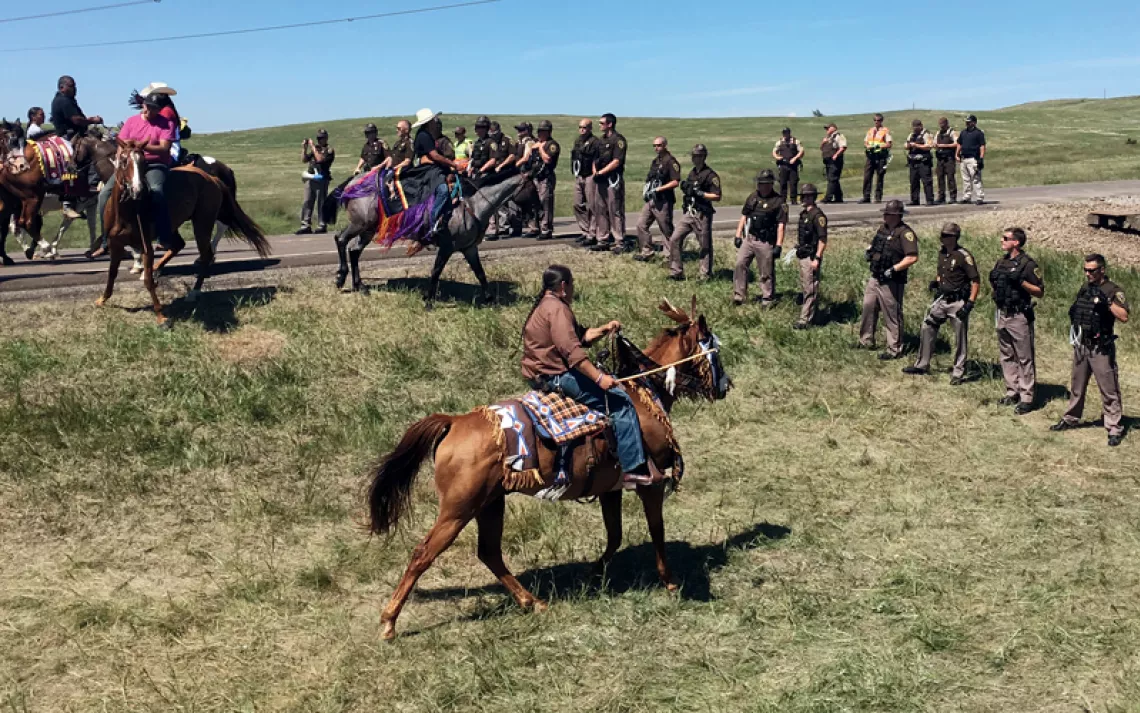Canada to Purchase Oil Sands Pipeline Project
Environmental and First Nations activists disappointed in Trudeau administration

Pipelines at sunset | Photo by kodda/iStock
On Tuesday, the Canadian government announced that it will buy Kinder Morgan Inc.'s oil sands pipeline. Kinder Morgan, a Houston-based company, has been trying since 2012 to build a second pipeline along its existing Trans Mountain pipeline, which is currently the only pipeline that connects the Alberta oil sands to the Vancouver coastline and the shipping routes of the Pacific Ocean.
The projected cost of building a second Trans Mountain pipeline has grown over the years as Canada’s First Nations, environmentalists, and the province of British Columbia have fought its construction, and as prices for oil sands crude have oscillated dramatically. By purchasing the project, the Canadian government assumes the financial risk that was previously held by Kinder Morgan, and oil companies that were subsidizing the pipeline in exchange for the right to use it, if it ever got built.
“The decision-maker has shifted from a boardroom in Texas to the parliament of Canada,” says Cam Fenton, Canada Tar Sands Organizer for 350.org. “If our government is buying a pipeline, that means every single taxpayer is a shareholder.”
Like the Keystone XL pipeline in the United States, the Trans Mountain pipeline has become a flash point for a wider debate in Canada about the environmental impact of tapping Alberta’s oil sands (also known as “tar sands”), a particularly polluting fossil fuel. The pipeline project would nearly triple the system's capacity to about 890,000 barrels a day. According to Fenton, building the pipeline would have the same climate impact as building more than 40 new coal-fired power plants. Burning the fossil fuels of Canada’s oil sands would use upwards of 30 percent of the world’s carbon budget as delineated by the Paris Agreement.
The Canadian government has put forward 4.5 billion Canadian dollars (about 3.5 billion USD) to pay for the infrastructure of the project. Kinder Morgan’s website claims that the pipeline’s cost is closer to 7.4 billion CAD (5.7 billion USD). The final costs of the project when considering construction and labor costs is unclear, but Fenton estimates that the final cost “could be anywhere from 12 to 15 billion [CAD.]”
Supporters of the pipeline expansion argue that it will bring jobs to the area and bolster the local economy. Support for the pipeline is strongest in Alberta, a province that relies on the oil sands for high-paying jobs and billions of dollars in resource royalty payments for its budget. The overwhelming majority of Canadian oil is exported to the United States because of NAFTA’s proportionality rule, but expanding Trans Mountain would allow larger oil shipments to Asia as a second market.
Still, the financial and legal obstacles faced by the pipeline are the same regardless of who owns it. “This pipeline is not going to be built,” says Caitlyn Vernon, campaigns director at Sierra Club British Columbia. “Kinder Morgan knows that this is a very risky investment, and that’s why they wanted out.”
There are currently 14 legal challenges against the Trans Mountain pipeline, including from the province of British Columbia itself. Before the Canadian government stepped in, Kinder Morgan had threatened to abandon the project by May 31 if the provincial government didn't drop its legal challenges.
Seven of the other legal challenges come from First Nations communities living along the pipeline’s proposed path who have led the charge against its development for over a decade. Of the 133 First Nations listed by Kinder Morgan as having a vested interest in the pipeline route, only 43 have signed mutual benefit agreements with the company. When the Canadian government first approved the pipeline project, the Tsleil-Waututh Nation in British Columbia filed a letter to the Federal Court of Appeal claiming that the government failed to complete adequate consultation with the tribe before greenlighting the project.
Vernon notes that the legal challenges faced by the project are similar to those faced by the Enbridge Northern Gateway pipeline, which was overturned in June 2016 for failing to properly consult with tribal nations. A recent poll in British Columbia showed that support for the pipeline was mixed, with both supporters and opponents saying that oil spills from the new pipeline were their greatest fear about the project.
The Canadian government’s move may not have cemented the pipeline’s construction, but in the eyes of many, it did seal something else: Canadian prime minister Justin Trudeau’s climate legacy. “This is sort of the nail in the coffin in a lot of ways for any hope of Justin Trudeau being seen as a climate leader,” says David Turnbull, communications director at Oil Change International.
Trudeau, the internet’s problematic boyfriend, has a history of touting lofty climate goals while subsidizing fossil fuels. Since being elected prime minister in 2015, Trudeau has proposed a nationwide carbon pricing plan and committed to reducing Canada's greenhouse gas emissions to help fight global climate change. But he paradoxically contends that Canada’s economic well-being depends on the Canadian oil sands, which generate far more pollution than the average oil operation. Many see Trudeau’s decision to purchase the Kinder Morgan pipeline as definitive proof that his administration is squarely on the side of Canada’s oil industry.
The Trudeau administration plans to sell the pipeline project to another company and to get some return on its investment. That’s a fool’s errand, Turnbull says. “The way the global market winds are growing, I don’t know that they’re going to have a buyer for it. I think there’s a lot of obstacles to this ever being built in the future. It is simply a venture they cannot afford to pursue.”
 The Magazine of The Sierra Club
The Magazine of The Sierra Club



